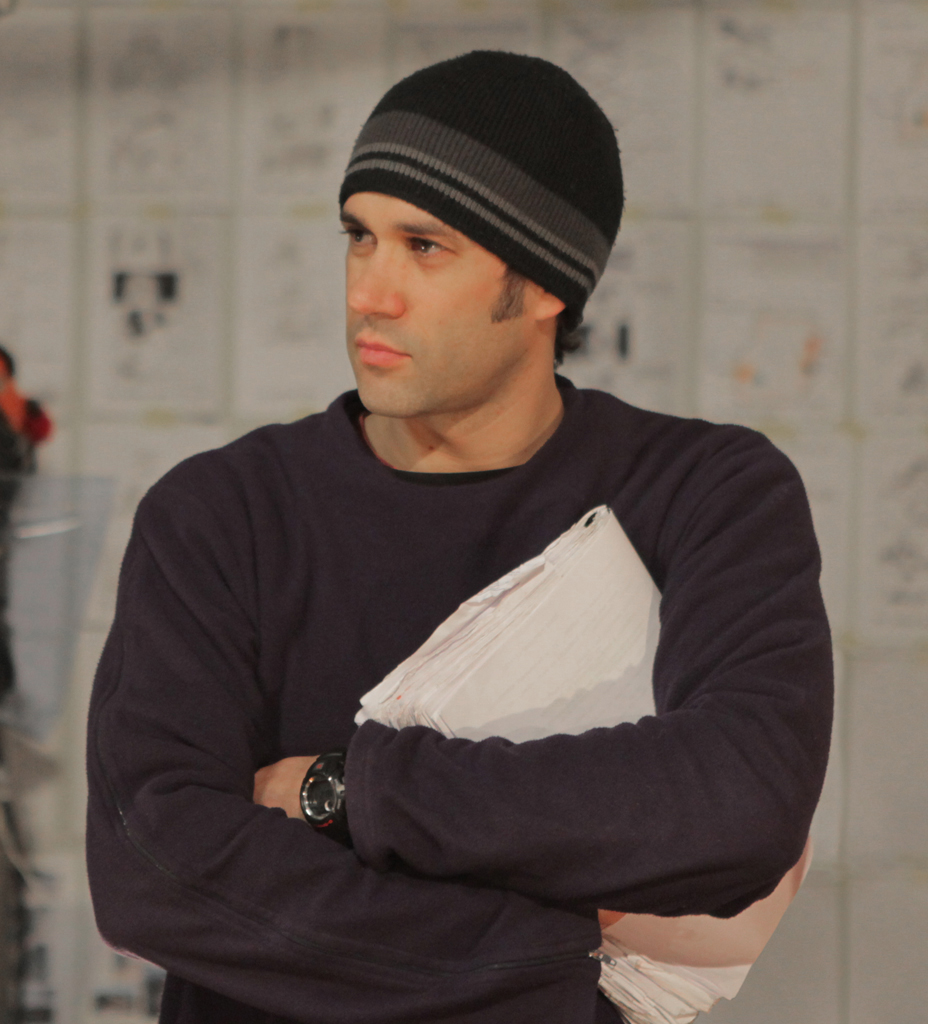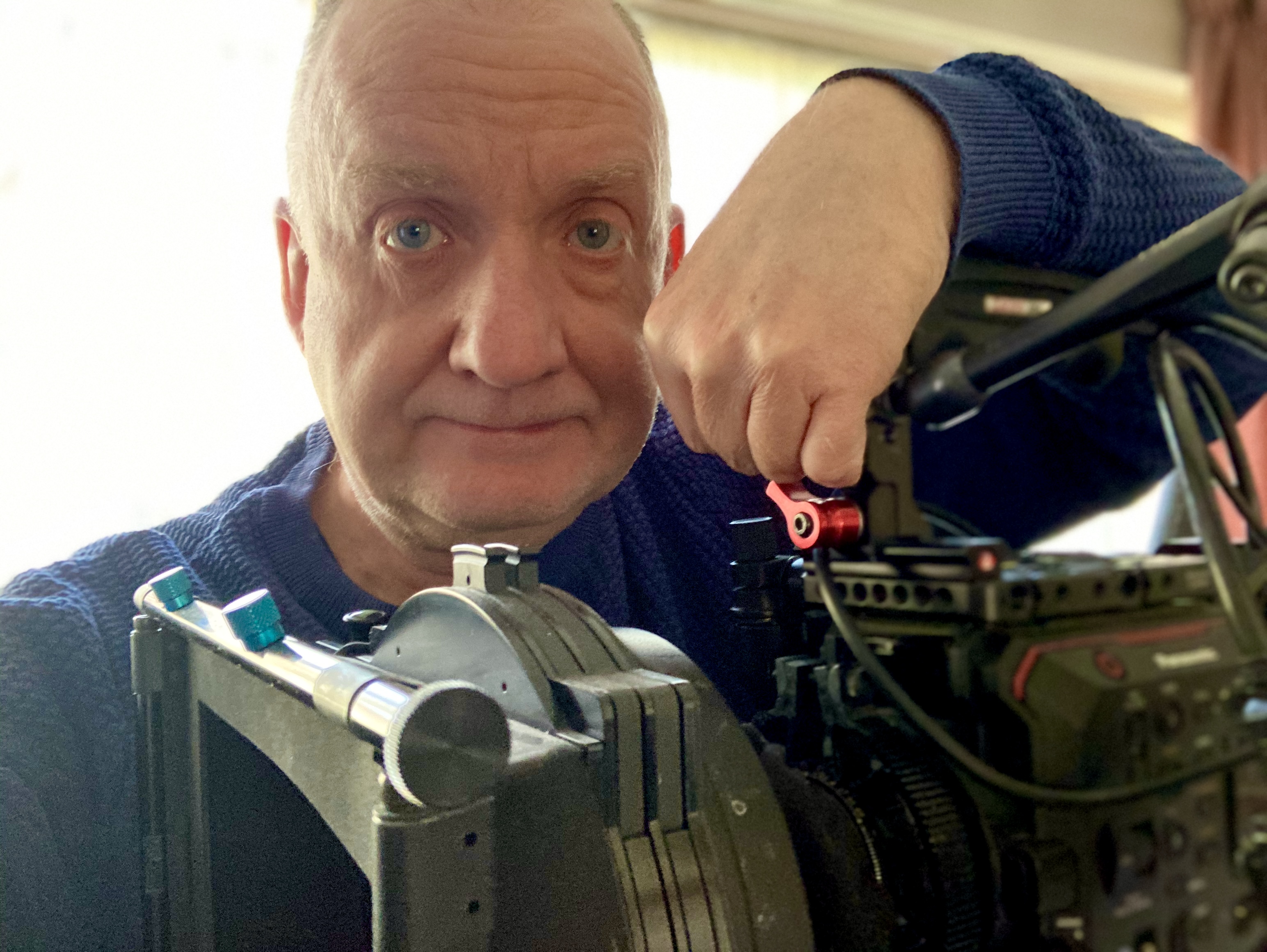ASK & DISCUSS
INDEXHow to create a budget for a low budget short?
9 years, 7 months ago - Helen Crevel
Hi all,
I'm currently in the pre-production stage of a short film and I'm trying to put together a budget. Ideally, I and the team want to be able to pay everyone reasonably but at the same time it's a low-budget production that will most likely at least be part-funded through a crowdfunding campaign. I've looked up BECTU rates and they are much higher than we could afford but at the same time, we want to pay more than just expenses. Are there any guidelines for rates on this kind of project? I don't want to just pick figures out of the air!
Thanks,
Helen
Only members can post or respond to topics. LOGIN
Not a member of SP? JOIN or FIND OUT MORE
9 years, 7 months ago - John Lubran
Yes, there's a ton of guide lines from numerous 'worthy' sources inhabiting differing reality bubbles.
Every project has its own reality. The greater the vacuum of potentiality the easier it is to raise funds. I imagine that the short film in question here is a work of fiction, but to what degree does the story strike a chord with real people? The more it resonates with other peoples lives the greater the potential pool of funders.
Clearly if the budget falls well short of union rates, or for that matter even minimum wage, then getting cast and crew has to be collaborative with some sort of mutual benefits, such as gaining credits and experience. With below legal pay and the law then whatever is offered should never be called employment, wages or time based pay, either verbally or in writing. It can however be called an honorarium. This takes the relationships outside and beyond both pay and employment legislation.
In terms of estimating a budget one goes through the entire process, line by line, day by day, item by item just as with any financially dependent enterprise. As a producer the money is just one element, the 'legals' are essential too. Proper recorded clearances or public domain verification for everything seen or heard in the film for example.
At the end of the day one has to cut ones cloth according to its measure.
Sounds though that you have a goer so all the very best with your film.
9 years, 7 months ago - Paddy Robinson-Griffin
Anyone who is working for below their rate is subsidising the film, so find a way that they can get value from working with you.
Perhaps pay experienced department heads and then backfill with cheap students who want experience of working with them. Experienced industry professionals probably won't give much of a hoot about copies of the DVD or the credit, but will appreciate cash notes in an envelope and expenses settled on the spot!
9 years, 7 months ago - Helen Crevel
Thanks for all your help so far! :-) I think I perhaps haven't explained clearly enough what I'm looking for.
I'm certainly not looking at something that falls short of NMW but I can't afford commercial rates for instance. But I can't find any documents which suggest what these figures would actually be (ball park).
I know from working as an actor that Equity has varying rates depending upon the type of project (e.g. I could be looking at around £50 a day for a student film to £300 plus for a commercial job and so on). I was wondering if anyone can point me in the direction of some such guidelines for crew?
Thanks again Paddy and John for your replies so far!
9 years, 7 months ago - Andrew Morgan
'Low-budget' can cover a lot of ground.
Since you're planning to pay your cast and crew you're obviously not a 'no-budget' production so what I do (assuming the money's there) is look at filling positions with:
Expenses-only (ALL expenses, including consumables i.e. makeup)
Minimum-wage - £6.70 per hour (rising to £7.20 in April)
Individually negotiated fee (may or may not be above minimum wage)
I've never (knowingly) paid BECTU rates although I'm sure some of the people I've worked with have used them as a basis for their quotes - that's expected.
You don't always have to spend money though - there's lots of potential collaborators out there willing to work for expenses (for the right project I'm one of them).
Do note though that if you're not paying (or paying minimum-wage) the area that'll be excruciating is post-production since it can take a long time to fix things/get things how you want. I know many projects (including some of mine) that have died in post-prod due to there being insufficient budget remaining to actually finish the film.
Don't just be thinking about the shoot.
9 years, 7 months ago - Andrew Morgan
@Helen Crevel Typically no, since a 10-hour day is getting close to £70 anyway and even with a modest crew it adds up:
(assuming you're the producer and not paying yourself)
Director
DoP
Camera Operator
(Focus-puller/1st AC/Clapper Loader)
(DIT)
1st AD
Script Supervisor
Gaffer
Hair & Makeup
Production Sound Manager
(Boom operator)
+ cast
Just for that, assuming you have a cast of say 3 would set you back £938 per day - 5 days shooting = £4690.
And that's without equipment rental, transport, costuming/props, location hire, insurance etc. etc.
Of course, if you wanted to cover expenses too I certainly wouldn't discourage it - your cast & crew do have bills to pay after all :)
9 years, 7 months ago - Dan Selakovich
I would start with a proper budget first. That means, if you were making your film in the real world, what would it cost? Once you have that, you're in a better position to start cutting. For example, you're worried about paying people. Good on you! But what about other things? Are you paying 2k a day for that perfect location? Can you find an acceptable location for free? Is your budget so costly, that the script needs tweaking?
So you have a real budget, how do you cut that down? As for labor, you seem to know about actor rates. What if you paid everyone the same as your actors (and I do mean everyone: from the P.A.s on up)? Kit fees are separate than pay, BTW. If you have a sound mixer with his equipment, how much would that cost if you rented it from a sound house (that's why a proper budget can be really helpful)? Then you are in a better position to negotiate that rate. Personally, I'd give every person coming in with his/her own equipment the same rate--and something that's affordable. It will do you no good if the dp is getting 200 a day for his camera package, and the sound mixer is getting 20. The sound mixer will be pissed, and rightfully so. Animosity on set is a killer.
9 years, 7 months ago - Marlom Tander
Budgeting really is just one thing at a time.
Start with your immovable objects - certain things will have a cost that you just can't mess with. The care and feeding of cast and crew for example.
Then plug in the numbers for things you can get pretty solid quotes for.
Then the estimates for things that you'll have to bite the bullet on but don't want to push for quotes yet.
What's left is what you have available for cast and crew. It will probably be less than you want, and it's also the default contingency fund :-)
I suspect that a simple day rate for everyone and say as much as possible of the ex vat rental rate for those that bring kit would be fair.
9 years, 7 months ago - Paul Campion
One way to do it is to offer to pay everyone a flat rate, regardless of whether they are the DOP or a runner. That way the crew know it's a level playing field for everyone, and you'll find you attract crew who are interested in the project first, and the money second.
For rates usually one of three:
Expenses only
£50 per day +
Minimum wage £7.20 per hour
You also need to budget for your post-production crew as well, which can add up if eg. your editor is going to spend a few weeks editing.
If you do a flat rate per day, you need to factor into potential overtime food/expenses, buying everyone dinner on set if you're going to run over time by an hour or two, plus paying for taxis home if you end up working really late.
For an hourly rate you'll have to pay them for any overtime worked. Both scenarios are a good reason to learn to make your day and finish on time, so you're looking after your crew and not having to pay extra.
If you add expenses to a flat rate or hourly rate, you're effectively just increasing the day rate - it may be easier to just add another £15 on top of the day rate. If you do pay expenses on top of your flat rate, you may have more accounting/paperwork to do dealing with the individual receipts. The flip side is that sometimes with expenses, people may live locally or already have a travel season ticket, so they won't bother to charge you (especially if they've enjoyed the shoot and you've looked after them on set) which can save you some money at the end compared to your original budget, but that's a bonus rather than something you can plan for.
9 years, 7 months ago - Paddy Robinson-Griffin
BTW, 'mates rates' are usually available for a day or two. Over two days, people are likely to have to turn down paid work for you, which is not a great incentive! This may help you with your scheduling (basically shoot it in a weekend!).
9 years, 7 months ago - Mark Wiggins
Everyone works on low budget shorts/fan films/music videos for unsigned bands etc. No one expects to get their normal rate on these jobs. The reasons people do this are many: Project sounds fun, they are doing a favour for someone else on the crew, its a sort of on-the-job training, they can get experience working the next grade up to their normal grade, they make new connections that can lead to further work etc.
I have two critea. One, I am not out of pocket. Two, all my equipment is covered by the productions insurance. I have seen too many adverts for crew for low-budget shorts where they are not insured and the reason given varies between, low-budget, self funded, not a commercial project, not doing anything hazardous etc. How any of these reasons means accidents or equipment brakage will not happen is beyond me. A few years ago I worked on one of these where the spreader of my tripod was broken; never got the money. Another time, I was given inaccurate information about the parking situation and got a £90 fine; never got the money. These things are important, especially since people are bringing on to set very expensive equipment that they have invested a lot of money on. And people would prefer this equipment to be covered by the productions insurance, since any claim they make on their own insurance will affect their future premiums and cause them a lot of hassle.
Pay is not important for jobs like this. Things like Insurance, being fed properly, being treated fairly, not taken advantage of, good working atmosphere, are. After all, these people are doing you a favour. Everyday they work on your production is a day they cannot work on a fully paid one.
So don't overly worry about the rate you offer. We are all willing to help. I've even been on short where the DOP was a member of the BSC.







